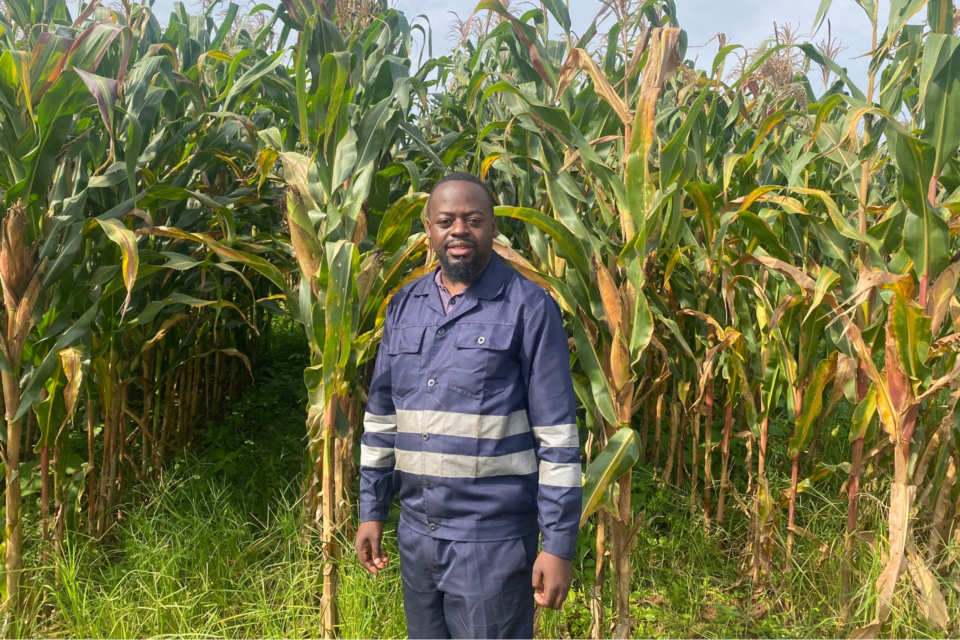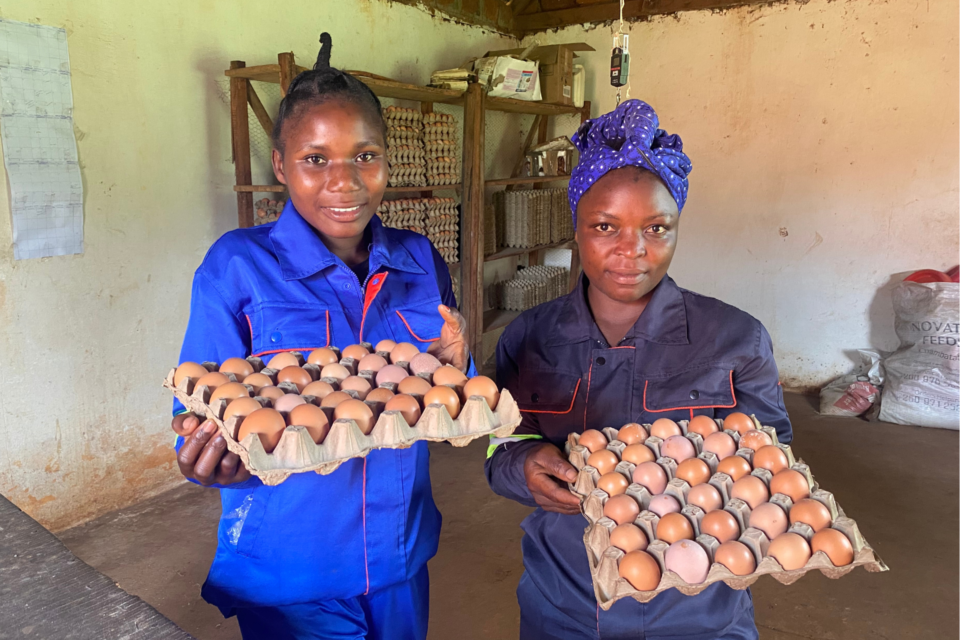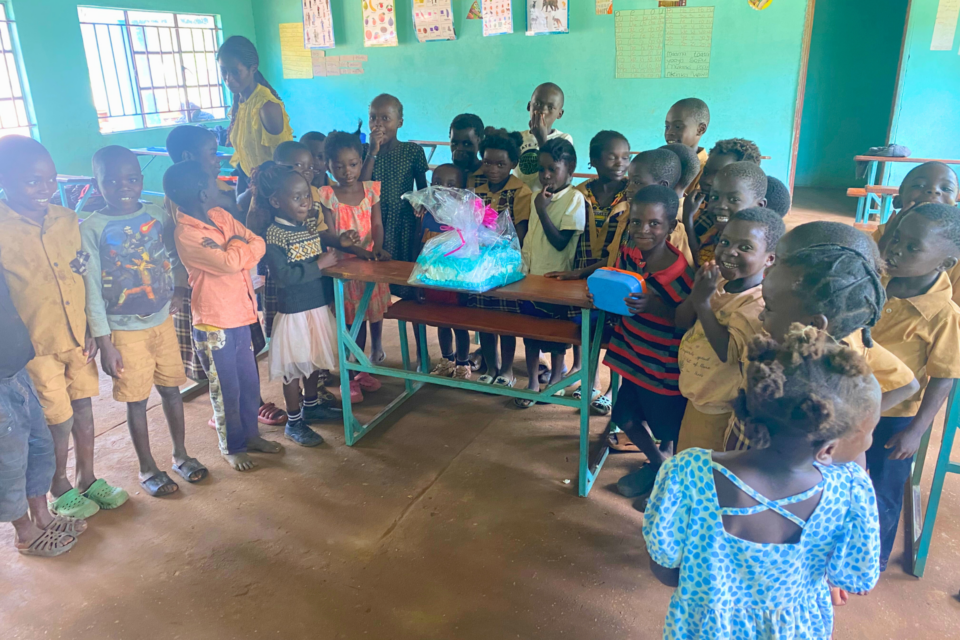Continuing our series promoting the Michigan Conference’s Earth Day of Action, United Methodist missionary Temba Nkomozepi says we must join forces to protect and care for this planet, leaving it out of love for future generations.
TEMBA NKOMOZEPI
Missionary at Mujila Falls Agricultural Centre, Zambia
I first learned about Earth Day at a summit held at the posh Eastgate Centre shopping mall in my hometown of Harare, Zimbabwe, on April 22, 2017. A work colleague asked me to go in their place, and at the summit, several experts from different backgrounds gave presentations on the research and technologies that could help us to be better stewards of the earth. We discussed everything from climate change to gender issues.
After the event, I shared my ideas with a smaller group. I provided details about the different greenhouse gas emissions scenarios that could change the trajectory of climate change depending on human behavior. I remember this day vividly because that is the day I met a beautiful young lady clad in a brown and orange outfit. I later learned her name was Angela, and we married two years later. In 2019, we had a son, Lungile, and earlier this month, on March 16, we were blessed with a daughter, Lindiwe. To me, Earth Day is a story of love, family, and the inheritance we will leave for our offspring: to leave the earth a better place so that the next generation can flourish.

As I reflect on today’s passage in the lectionary (Luke 15:1-3; 11b-32) on the parable of the prodigal son, perhaps we can draw a few parallels as we commemorate Earth Day. The first parallel is the presence of divergent views. In this familiar parable, one of the sons asked for his share and set off for a distant country. At our summit, we also had stark differences of opinion. As an agriculturist, the answer to me was minimum tillage; to someone else, the answer was solar; and to another, it was more important what the roles of men and women would be. It was not long until it was obvious that even though we were together physically, we were somehow very distant in lines of thought. It is not surprising, therefore, that politicians all over the world have taken advantage to divide people. In many places, a single statement on sustainability or the environment can be used to predict the political party they support.
The second parallel is that we are in this together. In the parable, even though the two sons had different opinions, they were still brothers and shared a father. They were family. In our lives, all human beings share the earth. We are all interconnected, and what is done in one part of the world still affects the others. In the case of human-induced climate change, for example, it is affecting everyone regardless of the greenhouse gas emissions in that particular region or country. Scientists who measure atmospheric greenhouse gas levels have proven a significant increase globally, even in the most remote places. It could be true, then, that mitigation and adaptation methods in one part of the world will still benefit us all. I believe this opens up opportunities for coordination and collaboration, which can lead us to take advantage of our connexion within The United Methodist Church. Replanting trees at Mujila Falls in Zambia or replacing a surface with a drip irrigation system will benefit us all.

The third parallel is that, eventually, we’ll reach a crisis. We are not told how long it was until the prodigal son had spent everything, but the parable tells of a situation illustrating that when it rains, it pours. A famine is somewhat bearable when you have money, even though food will be more expensive. Not having money is bearable when there is plenty to eat; maybe someone could benefit from the instruction in Leviticus 23:22, where some portion of the harvest was to be left in the fields for the poor. We do not know how much time remains until we face an unbearable crisis here on earth. With good stewardship of our planet, we may be able to prevent land degradation from leading to desertification and stop an extreme weather event from wiping out a huge portion of our population.
The fourth parallel is that the downward spiral stops when we come to our senses. The prodigal son had to run out of money and experience famine and inhumane conditions to come to his senses. The suffering made him humble and ready to compromise to be a person of lower status at his own father’s establishment. I wonder what it will take to convince the world and our generation to humble ourselves and accept compromises to truly celebrate creation, mourn all the harm done, and act for restorative justice.
In conclusion, out of all the parallels, we can also draw a contrast. Unlike in the parable where one son was given the negative name of prodigal, in our lives today, no line of thought is entirely wrong or right. As human beings, despite our differences, we should all join forces as members of the earth family to protect and care for this planet, a resource our Father in heaven has entrusted us with. This is important so that we can leave the earth for our offspring and the generations to come after them. At the Mujila Falls Agriculture Centre, we are going to plant 500 trees this year. How many trees can we plant together?
Temba Nkomozepi, from Zimbabwe, is an agriculturalist with Mujila Falls Agriculture Centre. He is a United Methodist missionary supported by United Methodist churches, including many in Michigan. Temba is among the mission personnel supported by the EngageMI program of the Michigan Conference (Advance #3022400). Mujila Falls Agriculture Centre is an EngageMI international partner (Advance #15016A).
Editor’s note: Join United Methodists all over Michigan on Saturday, April 26, for the Earth Day of Action. Worship together online and then plan to do one act of service to care for God’s good creation. Read this article to learn more and to register.
Enjoy what you are reading? Click here to subscribe to our MiFaith e-newsletter and receive articles like this one in your inbox each Friday.
Last Updated on April 2, 2025

